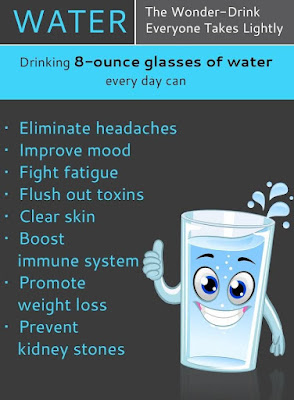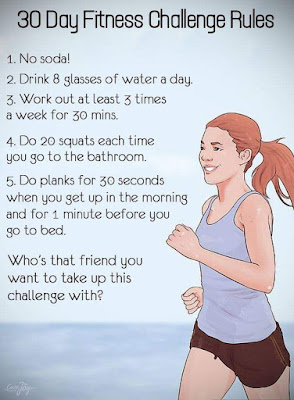Showing posts with label Health tips. Show all posts
Showing posts with label Health tips. Show all posts

Reason to drink lemon ginger tea on every day

Today, depression is a very common emotional state of mind. It is an extremely complex disease. No one knows exactly what causes it, but it can occur for a variety of reasons.
Sometimes, when people are depressed, they eat and drink to help themselves feel better. Here is a recipe of an anti-depressant turmeric juice if you or a loved one is suffering from depression.
The LASIK procedure represents the latest technology in refractive surgery to correct refractive errors. It utilizes the precision of the computerized excimer laser delivery system to customize a change in corneal curvature to bring light into proper focus; and by reshaping the cornea under a precision made flap, the comfort level and return to normal activities generally happens extremely quickly.
Gerald B Walman, MD, our medical director and surgeon, has been providing medical surgical eye care and laser eye surgery, to his following in Arizona for close to three decades. His international background, and meticulous and reassuring attention to individual patient concerns and needs has restored and maintained excellent results to thousands. Many of the staff have continued with the team for years as a result of this comfort level with patient interaction.
Strokes are the leading cause of adult disability in the United States and the third leading cause of death. A stroke can be the result of a lack of blood flow caused by a blood clot or a hemorrhage. Without oxygen, brain cells become damaged or die so the affected area of the brain becomes unable to function. Risk factors for stroke include: high blood pressure, diabetes, high cholesterol, smoking, and atrial fibrillation (heart abnormality). High blood pressure is by far the biggest risk factor for stroke.
The Path To Stroke Recovery
Strokes can affect patients physically, mentally, and/or emotionally. Disability corresponds to the areas of the brain that have been damaged. For most stroke patients, recovery involves a combination of physical therapy, occupational therapy, and speech-language pathology, and it’s important to take advantage of all of these services.
Medical care is often focused on preventing another stroke and most often utilizes anti-coagulant therapy with warfarin (Coumadin) or anti-platelet therapy with aspirin, ticlopidine (Ticlid) or clopidogrel (Plavix). These drugs are designed to prevent blood clots from forming and lodging in the brain, which could produce another stroke. These drugs are not, of course, used in cases where the stroke are caused by a hemorrhage.
Precautions with Coumadin
Coumadin works by blocking the action of vitamin K. Since green leafy vegetables and green tea contain high levels of vitamin K, you should avoid these foods while taking Coumadin, or at least don’t increase your consumption of them. Physicians monitor the effects of Coumadin using a test known as the International Normalized Ratio (INR) and will adjust the dosage up or down as needed. In addition to foods that are high in vitamin K, other natural substances that may interact with Coumadin include:
.Coenzyme Q10 and St. John’s wort (Hypericum perforatum), which may reduce Coumadin’s efficacy.
.Proteolytic enzymes, such as nattokinase and bromelain, and several herbs, including Panax ginseng, devil’s claw (Harpagophytum procumbens), and dong quai (Angelica sinensis), can increase Coumadin’s effects. It’s likely that you can continue using these products, but don’t change the dosage from what your body is accustomed to.
.Garlic (Allium sativum) and ginkgo (Ginkgo biloba) may reduce the ability of platelets to stick together, increasing the likelihood of bleeding. Generally, people on Coumadin should avoid high dosages of these products (more than the equivalent of one clove of garlic per day or 240 mg daily of ginkgo extract).
.Iron, magnesium, and zinc may bind with Coumadin, decreasing its absorption and activity. Take Coumadin and products that contain iron, magnesium, or zinc at least two hours apart.
.To reduce the likelihood of bleeding and easy bruising with Coumadin, try 150—300 mg of either grape seed or pine bark extract daily.
Natural Remedies For Stroke Recovery
From a natural perspective, Ginkgo biloba extract is key to stroke recovery. It increases blood flow to the brain, boosts energy within nerve cells, and favorably affects blood thickness. The recommended dosage is 240—320 mg daily (less if you take Coumadin).
Several supplements can help prevent blood clots, including omega-3 fatty acids, antioxidants, flavonoids, grape seed and pine bark extracts, and garlic. Fish oil (up to 3,000 mg per day EPA + DHA) and flavonoid-rich extracts appear to be able to be used safely in combination with aspirin and other platelet inhibitors. However, using multiple natural antiplatelet agents at the same time may increase bleeding tendencies when combined with antiplatelet drugs (including Plavix and Ticlid).
Two forms of choline have shown promise in aiding stroke recovery: citicoline (CDP-choline) and glycerophosphocholine (GPC). In one six-month trial that followed 2,044 stroke patients, GPC was found to significantly help the recovery more than 95 percent of participants—without side effects. Choose one of the following: citicoline: 1,000—2,000 mg daily or GPC 600—1,200 mg daily. There are no known interactions between citicoline or GPC and Coumadin or anti-platelet drugs.
Lastly, there’s nattokinase, a protein-digesting enzyme that has potent “clot busting” properties. It has shown significant potential in improving stroke recovery. Typical dosage is 100—200 mg daily. Nattokinase should be used with caution for those taking Coumadin or antiplatelet drugs.
Colgate Total contains triclosan, which has been linked to cancer and growth malformations in animals
The toothpaste was approved by the FDA in 1997 - but the toxicology summary reveals the FDA used company-backed evidence to approve it
The documents were released earlier this year after a Freedom of Information Act lawsuit last year
A chemical that has been linked to cancer cell growth is being used by millions of Americans in toothpaste every day, it has emerged.
The company behind Colgate Total insists that triclosan, which it uses to stave off gum disease, is safe to use because the toothpaste was approved in 1997 by the Food and Drug Administration.
But the toxicology documents used by the FDA to approve the toothpaste were only released early this year after a Freedom of Information Act lawsuit last year - and reveal the agency relied upon company-backed science to reach its conclusion, Bloomberg News reported.
The 35-page report reveals the FDA had concerns that triclosan could increase the risk of cancer - but Colgate said the chemical was only problematic in large doses.
But evidence available at the time, as well as newer studies, show there are indeed concerns with the chemical - including premature births and underdeveloped bones in animals.
'The recently released pages, taken alongside new research on triclosan, raise questions about whether the agency did appropriate due diligence in approving Total 17 years ago,' scientists told Bloomberg.
In 2010, a student linked triclosan, which has commonly been used to reduce bacteria contamination, to reduced fertility in mice and a 2013 study linked it to lowered sperm production in rats.
And a study from 2003 found triclosan in the urine of 75 per cent of 2,517 Americans - including children - who were tested by the Centers for Disease Control and Prevention.
Despite evidence - including pages in the report showing how tests found fetal bone malformations in mice and rats - Colgate deemed the results irrelevant because they were conducted on animals.
'We have created a system where we are testing these chemicals out on the human population,' scientist Thomas Zoeller told Bloomberg. 'I love the idea they are all safe. But when we have studies on animals that suggest otherwise, I think we're taking a huge risk.'
'I love the idea they are all safe - but when we have studies on animals that suggest otherwise, I think we're taking a huge risk'
Despite evidence - including pages in the report showing how tests found fetal bone malformations in mice and rats - Colgate deemed the results irrelevant because they were conducted on animals.
'We have created a system where we are testing these chemicals out on the human population,' scientist Thomas Zoeller told Bloomberg. 'I love the idea they are all safe. But when we have studies on animals that suggest otherwise, I think we're taking a huge risk.'
'I love the idea they are all safe - but when we have studies on animals that suggest otherwise, I think we're taking a huge risk'
Dr Thomas Zoeller
Still, Colgate said that the 35 pages do not prove the chemical is harmful to humans and said that its safety is proved by more than 80 clinical studies of 19,000 people.
'In the nearly 18 years that Colgate Total has been on the market in the U.S., there has been no signal of a safety issue from adverse-event reports,' spokesman Thomas DiPiazza told Bloomberg.
He added that, while the FDA had been worried about the chemical's carcinogenicity, a study in 1997 found it did not pose a cancer risk for humans.
Colgate said it has no plans to reformulate Total toothpaste.
The FDA said on its website that triclosan is 'not known' to be dangerous to humans - but the results found in animals has given them enough of a reason to run tests again.
Drug regulators are now reviewing the dangers of the chemical, but they will only re-visit the approval of Total if they find a great enough reason to.
In a sign of the concern over the chemical, Minnesota lawmakers banned the chemical in May. Avon and Johnson & Johnson have also announced plans to cut the chemical from its products.
In 2010, the European Union banned triclosan in materials that come into contact with food.
Still, Colgate said that the 35 pages do not prove the chemical is harmful to humans and said that its safety is proved by more than 80 clinical studies of 19,000 people.
'In the nearly 18 years that Colgate Total has been on the market in the U.S., there has been no signal of a safety issue from adverse-event reports,' spokesman Thomas DiPiazza told Bloomberg.
He added that, while the FDA had been worried about the chemical's carcinogenicity, a study in 1997 found it did not pose a cancer risk for humans.
Colgate said it has no plans to reformulate Total toothpaste.
The FDA said on its website that triclosan is 'not known' to be dangerous to humans - but the results found in animals has given them enough of a reason to run tests again.
Drug regulators are now reviewing the dangers of the chemical, but they will only re-visit the approval of Total if they find a great enough reason to.
In a sign of the concern over the chemical, Minnesota lawmakers banned the chemical in May. Avon and Johnson & Johnson have also announced plans to cut the chemical from its products.
In 2010, the European Union banned triclosan in materials that come into contact with food.































